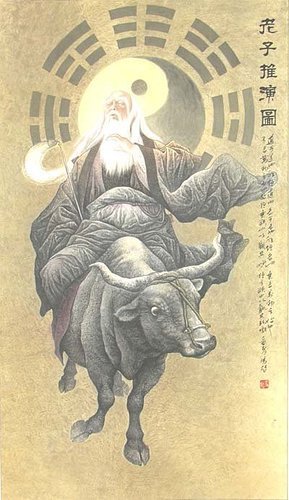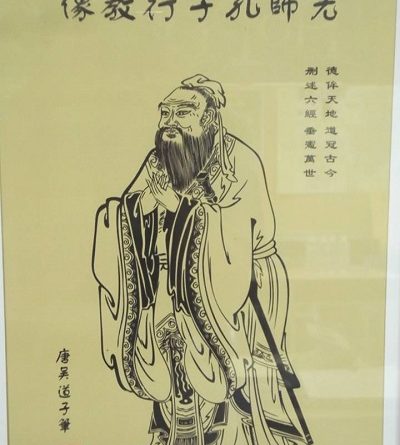《資治通鑒》評說
版權說明:歡迎非商業贏利目的轉載轉貼我的文章。轉載轉貼時請注明唵啊吽筆名和博客鏈接。
Religion is a universal phenomenon of human culture. Every civilization has religions. There is no exception. Monotheist religions are only a few of the religions that existed among a variety of religions practiced in the world. In a sense, a Human is a religious being.
People consent, scholars as well as commoners, that China is a country of the least religious, and even atheist country. This consent is formed through the academy dominated by the West and is using the west as a standard to measure other cultures. The Western monotheist religions propagated through colonization and imperialist expansion. As a result, Western culture is now the dominant culture in the world. The perception under such a colonist culture considers that the monotheist religion is the only true religion and the most advanced, and mature religion. The widespread of the monotheist religions through colonization and imperialist expansion is used to claim how successful and superior are the monotheist religions. This claim is unjustified.
When people consider China as a country of the least religious, they mistake institutionalized religion for religion. They don’t consider less institutionalized religion as religion. Christian and Islamic religions have thousands of years of church-state history in the Dark Age. As a result, the monotheist religions are the most institutionalized religion. Chinese religions are the least institutionalized religion. When people say that China is the least religious country, they really mistake the less institutionalized religions as less religious.
In Chinese civilization, religion never gets into power. China is the least religious country in that Chinese religions are the least institutionalized, and the least organized, and the religious institutions never accent into a state power in the entire Chinese history.
Another mistake is about the form of the sacred supernatural being that religion worships. The supernatural being for monotheist religion is the God; for Taoist religion is the Tao, for Confucians is the Heaven, for Buddhism is the Buddha. The monotheist religious sacred supernatural being is personalized, the God. The sacred supernatural beings of Confucianism, Taoism, and Buddhism are not personalized. The difference is not having or to having-not, but personalized or not.
The difference in the practice of religious spirituality between Chinese religions and monotheist religions is that the Chinese are trying to reach their sacred supernatural beings through their inner soul, inside and deep; while monotheist religions are trying to reach their sacred supernatural being through their church and prophets, outside and above. The Chinese religions are religions of God within, and the monotheist religions are religions of God without.
For monotheist religion, the ultimate solution of our world is vested outside and above, God. For Chinese religions, the ultimate solution to our world is vested inside the mind and hearts of our human beings.
The Great Learning, a Confucian classic book, states that “Gentlments' extension of knowledge lays in the investigation of things. When things are investigated, knowledge becomes complete. When their knowledge is complete, their thoughts are sincere. When their thoughts are sincere, their hearts are then rectified. When their hearts are rectified, their personality is cultivated. When their personality is cultivated, their families are well living. When their families are well living, and their countries are rightly governed. When their countries are rightly governed, the whole world is made tranquil and happy.” For Confucians, learning is for the cultivation of the personality, to become a perfect man. A perfect man can perfect the world. A perfect man is a Saint. For Confucians, life is a pursuit to be a Saint, so as to contribute to the world. The pursuit is toward the inside, the mind, and the heart, to cultivate the personality. The perfect personality, the Saint, is the God within.
Chapter 16 of Tao Te Ching says: “Empty yourself of everything.
Let the mind become still.
The ten thousand things rise and fall while the Self watches their return.
They grow and flourish and then return to the source.
Returning to the source is stillness, which is the way of nature.
The way of nature is unchanging.
Knowing constancy is insight.
Not knowing constancy leads to disaster.
Knowing constancy, the mind is open.
With an open mind, you will be openhearted.
Being openhearted, you will act royally.
Being royal, you will attain the divine.
Being divine, you will be at one with the Tao.
Being at one with the Tao is eternal”.
The ways to reach Tao or immortality are by meditation and pursuit towards the inner world of oneself. Tao is the Super Nature, the God within.
For a Zen Buddhist, the Zen practice is the lifelong pursuit of awareness, the God within.
Chinese, is, therefore, not a godless people, but a people of God Within. Religious people practice their religious morality and philosophy in their daily life. The morality and philosophies of Confucianism, Taoism, and Buddhism are pillars of Chinese Culture and are practiced daily in life, work, and even politics by Chinese people. If we measure how religious is a people by how much they practice their religious morality and philosophy in their daily life, then the Chinese are one of the most religious people, with God within their hearts and mind.





